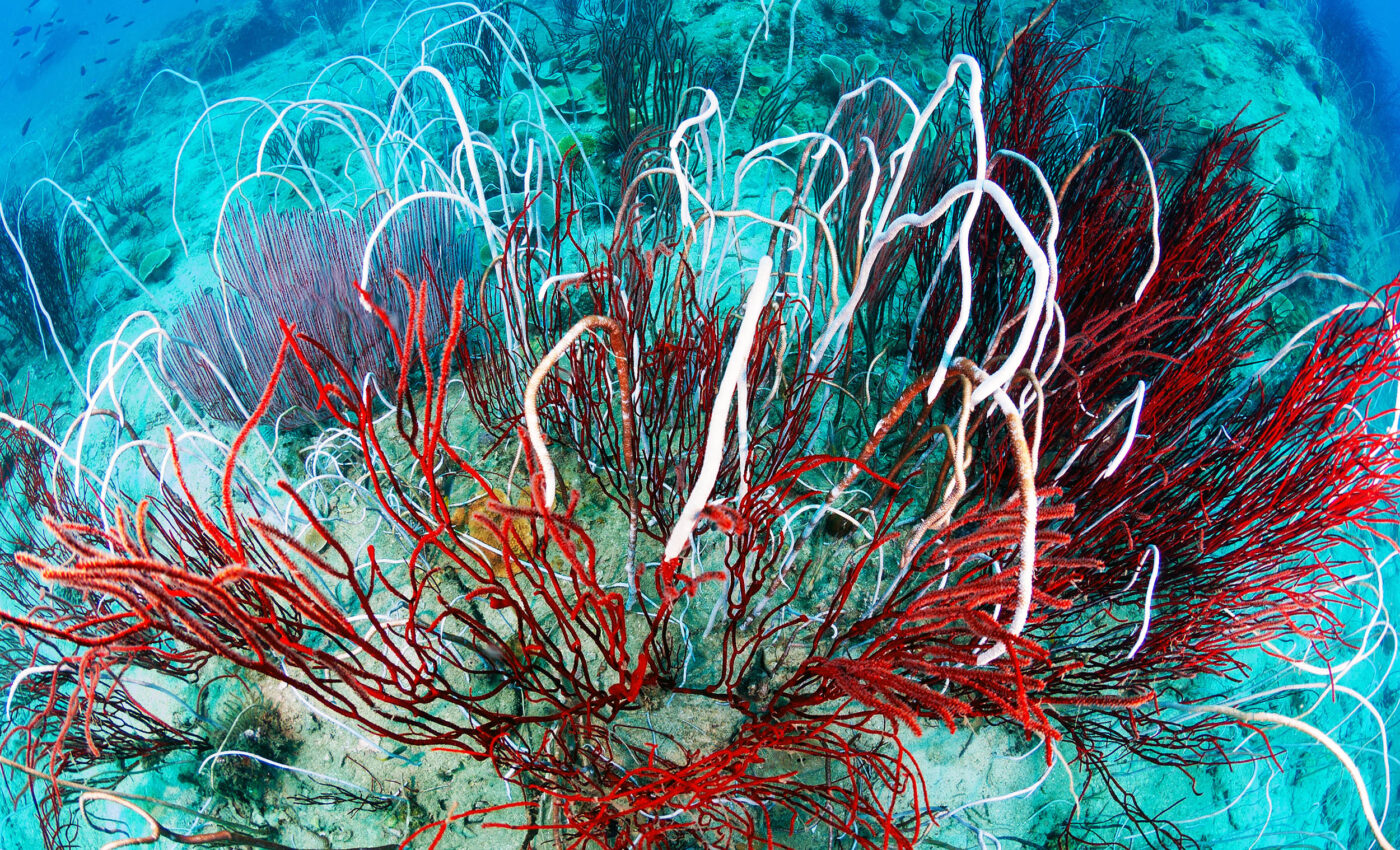
A single-celled microbe is protecting corals from heat and helping them survive climate change
Researchers have unveiled a new ally in the fight to protect corals against the ravages of ocean warming: a unique single-celled microbe. This discovery marks a pivotal moment in our understanding of coral resilience, especially in the face of escalating ocean-warming events such as bleaching.
The study was spearheaded by a team from the University of Miami Rosenstiel School of Marine, Atmospheric, and Earth Science, alongside colleagues from the Institute of Evolutionary Biology (IBE: CSIC-UPF) in Barcelona.
The team highlights the intricate role microbes play in bolstering coral defenses against the severe impacts of end-of-century heat stress and climate change projections.
Microbial indicator of coral resilience
At the heart of this research lies the revelation that specific protists within the coral microbiome — the diverse microorganisms residing in corals — can serve as indicators of a coral’s ability to endure heat stress.
This insight is particularly vital for corals worldwide as they increasingly confront more frequent ocean warming events.
The study places a spotlight on corals devoid of zooxanthellae, a type of symbiotic algae expelled during warm water-induced bleaching, underlining their vulnerability.
“This is the first time that a non-algae microbe has been shown to influence the ability of corals to survive a heat-stress event,” reveals Javier del Campo, the study’s senior author, adjunct assistant professor at the Rosenstiel School, and principal investigator of the IBE.
He emphasizes the critical need for a comprehensive understanding of the microbial factors affecting coral survivability to guide conservation strategies, particularly in prioritizing corals for intervention amid climate change.
“As corals face more and more heat-stress events due to climate change, a better understanding of all the microbes that may influence survivability can inform conservation practitioners as to which corals they should prioritize for intervention,” del Campo explained.
How the study was conducted
To arrive at these findings, the international research team embarked on a meticulous journey.
They collected samples of the violescent sea-whip (Paramuricea clavata), a vital architect of the Mediterranean temperate reefs currently facing the threats of mass mortality due to global warming.
In the lab, they analyzed the coral’s microbiome and subjected it to natural heat-stress conditions, observing signs of mortality.
The study identified a group of single-celled parasitic protists, known as Syndiniales, that are more prevalent in corals surviving heat stress.
In contrast, Corallicolids — protists closely related to human malaria parasites — are found more abundantly in corals succumbing to heat stress.
New horizon in coral conservation
Protists, or single-cell eukaryotes, are less studied than bacteria in most host organisms but may have a major influence on the health of their coral host.
del Campo underscores the importance of considering all members of the microbiome, from bacteria to protists, in assessing coral health.
“The microbiome is a vital component of coral host health and we should study all members of it from the bacteria to the protists,” said del Campo.
In summary, this study unveils a critical microbial player in the coral ecosystem, while clearing new paths for more targeted conservation efforts.
Understanding the complex interplay of various microorganisms within corals is crucial in developing strategies to bolster coral resilience against the escalating challenges posed by climate change.
More about sea-whip coral and their microbes
As mentioned above, sea-whips, captivating marine organisms, claim their place in the underwater world with their unique, whip-like structures.
These intriguing sea creatures, belonging to the soft coral family, paint the ocean floor with their vivid colors and intricate forms.
Unlike their hard coral cousins, sea-whips lack a rigid calcium carbonate skeleton, allowing them a flexibility that adds a dynamic element to the seascape.
Anatomy and habitat
Sea-whips exhibit a fascinating anatomy. They consist of a central, whip-like skeleton covered in polyps, tiny animals that make up the living part of the coral.
These polyps possess stinging cells, enabling them to capture tiny organisms for nutrition. Sea-whips thrive in a variety of marine environments, from shallow reefs to deep-sea floors, displaying an incredible adaptability to different ocean conditions.
Sea-whips play a crucial role in marine ecosystems. They serve as habitats for a multitude of marine species, offering shelter and breeding grounds.
Fish, crustaceans, and other sea creatures often seek refuge within the branches of sea-whips, finding protection from predators and harsh environmental conditions.
Threats and conservation efforts
Despite their resilience, sea-whips face several threats, primarily from human activities. Overfishing, pollution, and destructive fishing practices, like trawling, pose significant risks to their survival.
Additionally, climate change and the resulting ocean acidification and warming further exacerbate these challenges. Thankfully, as discussed above, single-celled microbes are proving adept at protecting these coral from climate change.
Conservation efforts focus on protecting sea-whip habitats, promoting sustainable fishing practices, and raising awareness about the importance of these delicate marine organisms.
Sea-whips attract considerable scientific interest due to their unique biological properties. Researchers study them for insights into coral growth, reproduction, and resilience.
Moreover, sea-whips are of interest in the field of biomedicine for their potential in drug discovery, as they produce a range of bioactive compounds.
In summary, sea-whips stand as guardians of the ocean’s beauty and biodiversity. Their presence adds to the aesthetic value of the underwater world while playing a pivotal role in maintaining the health and balance of marine ecosystems.
Protecting these magnificent creatures is essential for preserving the richness and diversity of life beneath the waves.
The full study was published in the journal Environmental Microbiology.
—–
Like what you read? Subscribe to our newsletter for engaging articles, exclusive content, and the latest updates.
Check us out on EarthSnap, a free app brought to you by Eric Ralls and Earth.com.
—–













